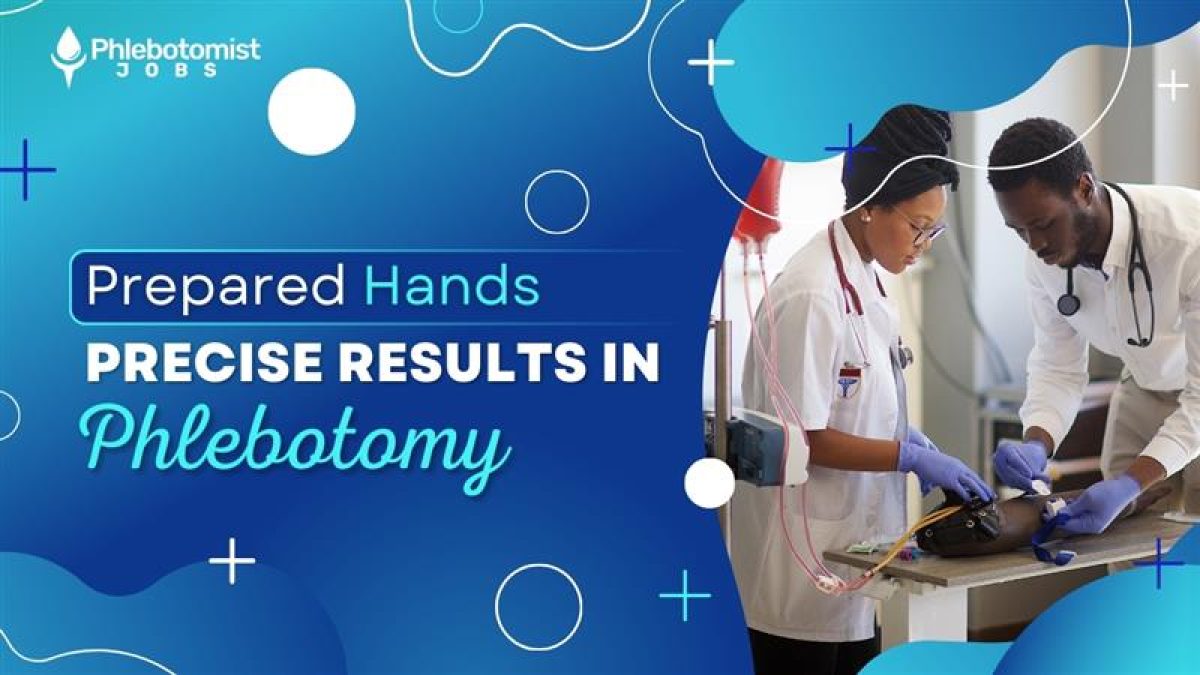Table of contents ▸
Phlebotomy jobs require technical skills along with blood drawing techniques. Precision and knowledge of performing procedures are very important in this job, but so are communication skills for succeeding in a profession of this kind. From calming anxious patients to collaborating with medical teams, patient interaction and clear communication can make all the difference. This blog discusses why communication skills are essential for phlebotomy jobs and how they improve the patient experience and produce better outcomes professionally.
Improving Interaction with Patients
Patient interaction is the heart of a phlebotomy job. Much of the interaction makes it easier for a phlebotomist to relate to a patient, relieve their fears, and get them through the process. This creates a friendly environment where patients can be comfortable coming for visits. Communication skills help phlebotomists in getting information across to diverse patients, thereby personalizing their care. Trust-building leads to such positive experiences, which benefit both patients and the healthcare facility.
Calming Patient Anxiety
There are many people who are afraid of blood drawing. Communication helps a phlebotomist ease their nerves behind reassuring words, a soft tone, or distraction with the patient’s activities so that the client will cooperate and feel comfortable.
Explaining Procedures Clearly
Clear communication is very much above in phlebotomy jobs. That is where the communication of phlebotomists brings them down to a level so that they can let patients know about the procedure in simpler words. This enhances safety because misunderstandings are greatly reduced.
Building Lasting Rapport
Rapport builds trust. The communication skills then become evident in the mutual eye contact, the smile, and the understanding behind patient interaction in phlebotomy jobs, making them feel important within the whole process and encouraging return visits.
Strengthening Teamwork

Communication skills ensure that two professionals, usually working in close collaboration, have a common understanding and modes of information exchange in addition to sharing workflows to minimize errors in demanding, fast-paced environments such as hospitals or clinics. Working together this way provides efficiencies and an overall safer environment in a busy healthcare setting. By communicating openly, phlebotomists contribute to a united team effort that enables care of high quality.
Sharing Vital Information
Phlebotomists relay difficult veins or specific sample requirements and, therefore, with accurate communication skills, make sure everything is clear for really good processing in phlebotomy jobs.
Coordination Under Pressure
These high-pressure situations are where teamwork is really tested. Phlebotomists need to coordinate very quickly with their co-workers during the busiest of shifts using their communication skills and while maintaining efficiency in patient interaction and operations.
Supporting Interdisciplinary Care
The phlebotomists usually work with nurses, doctors, and technicians. Effective communication among those people with one another would link those roles for seamless patient interaction and high-quality care delivery.
Navigating Challenging Situations
Most of the Phlebotomy jobs involve complex relationships with patients. Good communication enables a phlebotomy technician to deal with the difficult circumstances with the lowest level of tact, empathy, and efficiency and, hopefully, with a positive outcome. This leads to a more pleasant process while keeping the atmosphere light, especially in tough situations. Communication skills equip the phlebotomist to deal with unexpected challenges with confidence and professionalism.
De-escalating Tension
Tact is required for an upset or uncooperative patient. Appropriate communication skills will find phlebotomists to respond calmly and actively listening during patient interaction or encounters, reducing tension and assuring safety.
Engaging Pediatric Patients
Children need special handling in phlebotomy jobs. Communication techniques work for the phlebotomist to utilize playful or soothing language in interactions, making the experience less frightening and making it all the more successful.
Assisting Confused Patients
Most of the benefits that older or confused patients can derive are from clear communication. Skills in communication strengthen the comprehension of instructions and improve the patients’ experience with the procedure.
Driving Career Advancement

Communication in the job of phlebotomy helps much in advancement opportunities. It showcases the leadership traits, makes networking possible, and allows an individual to be different from others when it comes to competition in health care markets.
Securing Leadership Roles
For supervisory positions, employers seek phlebotomists who are very good in communication. Excellence in both patient interaction and teamwork can signal readiness to go further in one’s career in phlebotomy jobs.
Good Networking
Connections open doors. The phlebotomists with good communication skills engage confidently in networking at events so that everyone can avail themselves of the positions open to them in various phlebotomy jobs.
Excelling in Interviews
Interviews are tests of interpersonal skills. Related to that, the hiring manager might be impressed in increasing chances concerning phlebotomy jobs by recounting any interaction with patients and how it was carried out using communication skills.
Conclusion
Technically, all relevant skills apply equally to succeed in phlebotomy jobs, including communication skills. They elevate the quality of patient interaction, improve teamwork, assist in trouble navigation, and unlock broader career potential. Establishing trust, clarity, and empathy in the manner adopted by the phlebotomists brings better patient care and ensures professional success. In the evolving field of health care, communication skills will continue to be the bedrock for any phlebotomist desiring to be successful. These skills not only help their development as professionals but also ensure deep connections with patients and coworkers.
For more job listings and tips to succeed in your phlebotomy jobs, don’t forget to connect with us through our website Phlebotomist Jobs.
Follow us on Social Media: LinkedIn | Facebook | Twitter | Instagram












